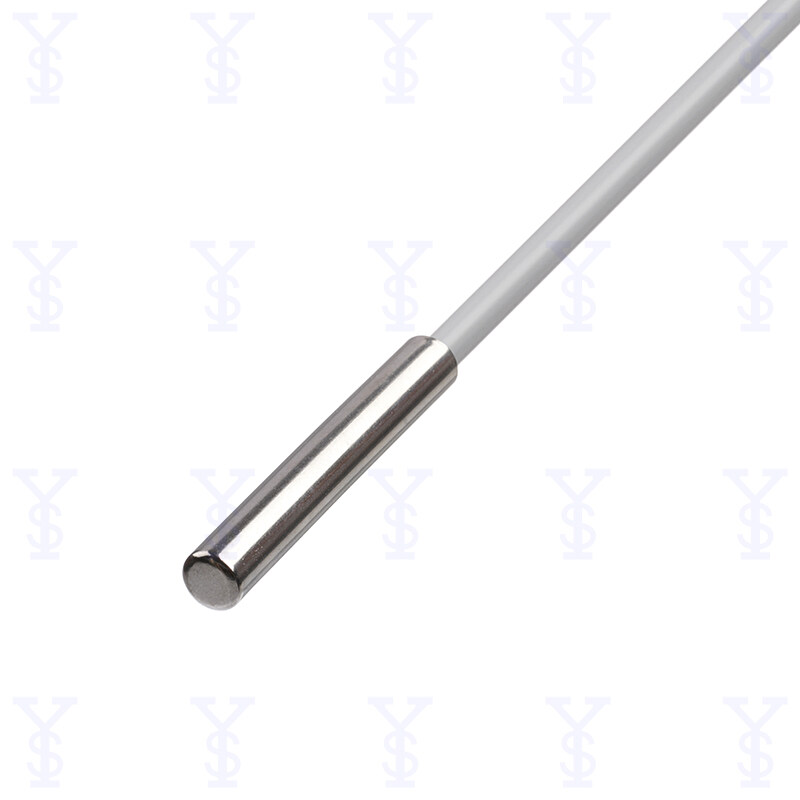Errore nel formato dell'e-mail
emailCannotEmpty
emailDoesExist
pwdLetterLimtTip
inconsistentPwd
pwdLetterLimtTip
inconsistentPwd


The Ultimate Guide to PT200 Temperature Sensor for Motor
Temperature sensors play a critical role in various industries, ensuring the smooth and efficient operation of machinery and electronic devices. One such essential device is the PT200 temperature sensor for motors. This comprehensive guide will explore the importance, functionality, and applications of the PT200 temperature sensor, along with tips on selecting the right sensor for your needs.
Introduction to PT200 Temperature Sensor for Motor
The PT200 temperature sensor is a highly reliable and precise device used to monitor and control the temperature of motors. As motors are integral to numerous industrial and commercial applications, maintaining their optimal temperature is crucial to prevent overheating, reduce wear and tear, and extend their lifespan.
What is a PT200 Temperature Sensor?
A PT200 temperature sensor is a type of resistance temperature detector (RTD) that uses platinum as its sensing element. Platinum RTDs are known for their accuracy, stability, and wide temperature range. The "200" in PT200 indicates the sensor's resistance value at 0°C, which is 200 ohms. This resistance changes predictably with temperature, allowing for precise temperature measurement.
Why Use a PT200 Temperature Sensor for Motors?
Motors generate heat during operation, and excessive heat can lead to motor failure, reduced efficiency, and increased maintenance costs. By using a PT200 temperature sensor for motors, you can:
- Ensure Optimal Performance: Maintain the motor's temperature within the recommended range for efficient operation.
- Prevent Overheating: Detect and mitigate overheating conditions promptly.
- Extend Motor Lifespan: Reduce the risk of thermal damage and prolong the motor's service life.
- Enhance Safety: Prevent fire hazards and other safety issues associated with overheating motors.
Key Features of PT200 Temperature Sensor for Motor
Understanding the key features will help you appreciate its advantages and applications.
High Accuracy and Precision
The PT200 temperature sensor offers high accuracy and precision in temperature measurement, making it ideal for critical applications where exact temperature control is necessary.
Wide Temperature Range
PT200 sensors can operate over a broad temperature range, typically from -200°C to +600°C, making them suitable for various industrial environments.
Stability and Repeatability
Platinum RTDs like the PT200 are known for their long-term stability and repeatability, ensuring consistent performance over time.
Robust Construction
The PT200 temperature sensor is designed to withstand harsh conditions, including vibration, moisture, and high temperatures, making it durable and reliable in demanding applications.
Applications of PT200 Temperature Sensor for Motor
The PT200 temperature sensor is widely used in various industries due to its versatility and reliability. Here are some common applications:
Industrial Motors
In industrial settings, motors are used in machinery, conveyors, pumps, and compressors. Monitoring motor temperature with a PT200 sensor ensures these machines operate efficiently and safely.
Automotive Industry
In the automotive industry, PT200 temperature sensors are used to monitor the temperature of electric motors, engines, and other critical components, ensuring optimal performance and preventing overheating.
HVAC Systems
Heating, ventilation, and air conditioning (HVAC) systems rely on motors for fans, compressors, and pumps. PT200 sensors help maintain the proper temperature of these motors, enhancing the system's efficiency and lifespan.
Renewable Energy
In renewable energy applications, such as wind turbines and solar power systems, PT200 temperature sensors monitor the temperature of motors and other components to ensure reliable and efficient operation.
How to Select the Right PT200 Temperature Sensor for Motor
Choosing the right PT200 temperature sensor for your motor involves considering several factors to ensure compatibility and optimal performance.
Consider the Operating Environment
Evaluate the conditions in which the sensor will operate, including temperature range, humidity, vibration, and exposure to chemicals or other harsh environments. Select a PT200 sensor with suitable specifications to withstand these conditions.
Determine the Required Accuracy
Consider the accuracy requirements of your application. PT200 sensors offer high precision, but ensure the chosen sensor meets the specific accuracy needs of your motor monitoring system.
Compatibility with Motor Type
Ensure the PT200 sensor is compatible with the type of motor you are using. Different motors may have varying requirements for temperature monitoring, so choose a sensor that aligns with these needs.
Integration with Control Systems
Check if the PT200 temperature sensor can be easily integrated with your existing control systems, such as programmable logic controllers (PLCs) or motor control units (MCUs). Compatibility with these systems will facilitate seamless data acquisition and monitoring.
Installation and Maintenance
Consider the ease of installation and maintenance when selecting a PT200 sensor. Choose a sensor that can be easily installed and serviced to minimize downtime and maintenance costs.
Installation Tips for PT200 Temperature Sensor for Motor
Proper installation of the PT200 temperature sensor is crucial for accurate temperature measurement and reliable performance. Follow these tips for optimal installation:
Choose the Right Location
Select a location on the motor that accurately reflects its operating temperature. Common locations include the motor winding, bearing housing, or surface of the motor casing.
Ensure Proper Contact
Ensure the sensor has good thermal contact with the motor surface to provide accurate temperature readings. Use appropriate mounting accessories, such as clamps or adhesive, to secure the sensor in place.
Protect from External Factors
Shield the sensor from external factors that could affect its performance, such as electromagnetic interference (EMI), moisture, and physical damage. Use protective housings or enclosures if necessary.
Follow Manufacturer Guidelines
Adhere to the installation guidelines provided by the sensor manufacturer to ensure proper installation and avoid voiding the warranty.
Maintenance and Calibration of PT200 Temperature Sensor for Motor
Regular maintenance and calibration are essential to ensure the continued accuracy and reliability of the PT200 temperature sensor.
Regular Inspections
Perform regular inspections to check for any signs of wear, damage, or corrosion. Replace any damaged sensors immediately to maintain accurate temperature monitoring.
Calibration
Calibrate the PT200 temperature sensor periodically to ensure its accuracy. Follow the manufacturer's recommendations for calibration frequency and procedures.
Cleanliness
Keep the sensor and its surroundings clean to prevent any contaminants from affecting its performance. Regularly clean the sensor using appropriate cleaning agents and methods.
Benefits of Using PT200 Temperature Sensor for Motor
Using a PT200 temperature sensor temperature monitoring offers several benefits:
Enhanced Motor Protection
By continuously monitoring motor temperature, the PT200 sensor helps prevent overheating and thermal damage, protecting the motor from premature failure.
Improved Efficiency
Maintaining the motor within its optimal temperature range ensures efficient operation, reducing energy consumption and operational costs.
Reduced Maintenance Costs
Early detection of temperature anomalies allows for timely maintenance and repairs, reducing the risk of costly breakdowns and extending the motor's service life.
Increased Safety
Monitoring motor temperature enhances safety by preventing overheating-related hazards, such as fires or equipment damage.
Conclusion
The PT200 temperature sensor for motor is an essential tool for ensuring the efficient and safe operation of motors in various applications. Its high accuracy, wide temperature range, and robust construction make it a reliable choice for industrial, automotive, HVAC, and renewable energy sectors. By selecting the right PT200 sensor and following proper installation and maintenance practices, you can maximize the performance and longevity of your motors while reducing operational costs and enhancing safety.
Whether you are looking to upgrade your existing temperature monitoring system or implement a new one, the PT200 temperature sensor is a smart investment that will deliver long-term benefits for your operations.

